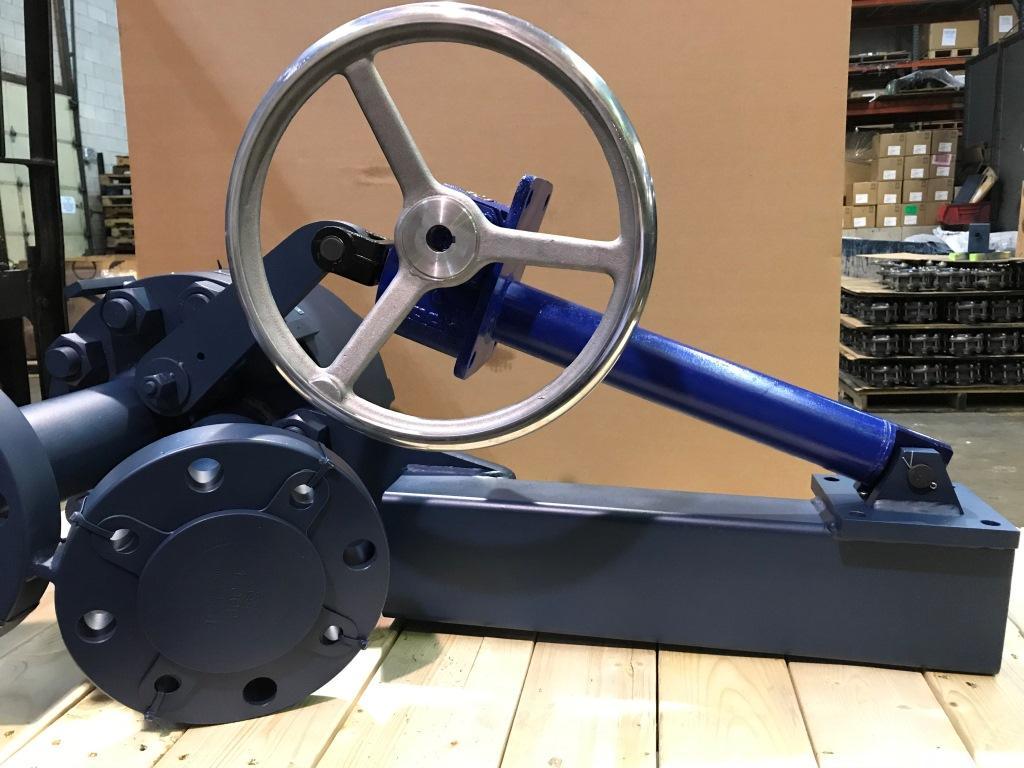5 Facts About Pump Isolation Valves
09-23-20

In many industrial applications, motor driven pumps allow for fluid to flow within a pipeline. Whenever these pumps need to cease operation due to scheduled maintenance or an emergency, there needs to be a safe process. It is crucial to select the correct pump isolation valve to prevent leakage and ensure a tight shutoff. This, in turn, prevents equipment damage and provides for the safety of all maintenance workers.
There are many types of valves in use throughout the world today for all manner of industrial and manufacturing operations.
Here Are 5 Facts About Pump Isolation Valves
Fact #1 – An isolation valve is a valve that is involved in a fluid handling system.
That valve stops the flow of whatever is passing through it. This pump isolation valve will discontinue the flow of the media, due to maintenance or because of an emergency.
Fact #2 – A valve is classified as an isolation valve because of what it is intended for in an operation.
It has nothing to do with the specific valve itself; there are many types of valves that can be used as isolation valves.
Fact #3 – Think about the valves you have under your kitchen or bathroom sinks.
These rarely need to be turned on or off because any water which flows through the pipes is stopped or started from the spigots, which are the faucet handles on the sink. You don’t have to reach under the counter to turn the water on or off. When that faucet needs to be replaced – perhaps, it’s old or has broken in some way – then the isolation valve has to be shut off. The same process is done for operations in large industrial or manufacturing settings.
Fact #4 – There are different types of isolation valves.
A few of those are ball valves, gate valves and globe valves. All are used to stop the flow of content coming through a line for a given location.
Ball valves are probably the most common type of isolation valve. Ball valves are called such because they feature a stem and a ball. Inside the ball is an opening. When the valve is turned on, that opening lines up with the pipe, allowing free flow. A control lever rotates that ball when you no longer want any process media coming through.
These types of isolation valves called ball valves are durable and will last a long time. They are reliable yet do not offer fine control if that is what is needed. For easy shut-offs and turn-ons, ball valves are your go-to valve. In fact, they are often referred to as “shut off” valves.
Gate valves, on the other hand, operate differently from ball valves. They offer more fine control over materials passing through and also over the pressure of the flow. With a gate valve, there is no immediate shut off. If that is not a high priority, but fine control is, a gate valve is the better option.
A gate valve may be better in certain settings, but their construction can often be an issue. Gate valves come with handles that are often prone to corrosion due to the material used in construction and/or the liquids that it comes in contact with. A gate valve is not as easy to discern as a ball valve and there are times when either valve will not live up to its durability.
Fact #5 – So, what do you do when you need a pump isolation valve?
Look no further than The Everlasting Valve Company. We have process valves and diverter valves that can easily take the place of any ball or gate valve you need replaced.
At Everlasting Valve Company, you will find a valve that is tougher, stronger, more durable and more reliable than any ball or gate valve you have tried previously. Everlasting valves will handle whatever you throw at them, right down to the dirtiest, grungiest, and most pressurized applications you have. From dry abrasive solids to hot catalyst handling to fluid-catalytic cracking, our valves can take it all.
This is all because our valves at Everlasting Valve feature a unique open-body design and a self-lapping, rotating disc. This clears away all debris with each pass, making the valve seal even tighter, lessening the possibility of leaks. Our valves just keep getting better with age. They wear in, not out.
Our industrial valves are engineered for the ultimate in exceptional performance, longevity, and value. They may cost more, but, in the long run, they will continue operating long after other ball or gate valves have failed and been replaced.
At Everlasting Valve Company, we are a family-owned organization and our products are all American made. Our business is QMS is ISO 9001:2015 certified, so you can place your confidence in us for all of our products. Contact us today to find out how we can help you and your company.